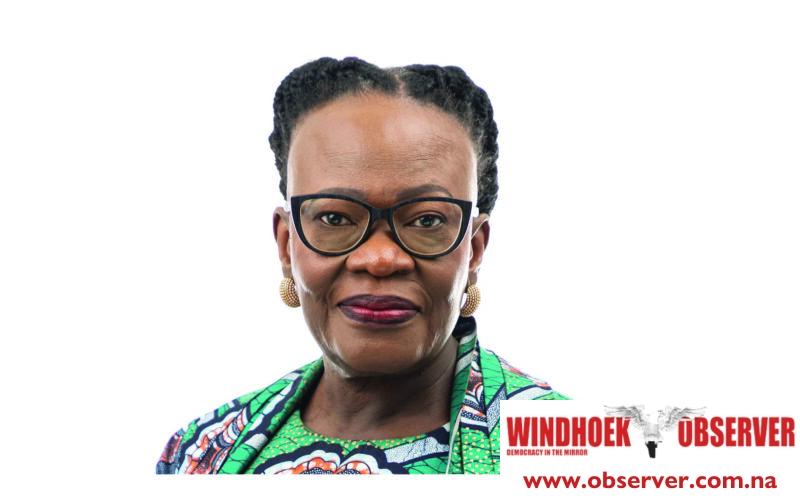Selma Ashipala-Musavyi
I remember vividly the corridors of the United Nations in October 2000. During Namibia’s leadership of the Security Council in October, I carried with me the conviction that the world needed to view conflict differently. We had emerged from our own liberation struggle, a struggle during which women were not only victims but also fighting side by side with our male combatants, leaders and even mediators. It was inconceivable to my colleagues and I, that women should remain marginalised in the Council’s deliberations on peace and security.
When Namibia proposed that women must be recognised not just as victims of conflict but as contributors of peace, we met resistance. Some members questioned whether “gender issues” belonged in the domain of international security. Others dismissed it as advocacy more appropriately suited for social development forums. We knew that if we relented, another generation of women would be excluded from history’s peace negotiating tables. We pressed on, among the Security Council and larger members of the UN, occasionally with subtle diplomacy, other times through direct friendly pressure. On 31 October 2000, the United Nations Security Council Resolution 1325 on Women, Peace and Security was adopted.
The Resolution is anchored on four interrelated pillars – Participation, Protection, Prevention, and Relief and Recovery – calling for women’s full involvement in peace processes, safeguarding their rights during conflict, preventing violence, and ensuring their needs are addressed in post-conflict recovery efforts. That moment remains one of the most significant highlights in my career. A small delegation from a newly independent African nation, persuading the world’s most powerful body to acknowledge women’s contributions to peace-making and peace-building. It is deeply symbolic that the Silver Anniversary of Resolution 1325 will be commemorated in Windhoek. It is a homecoming. From Windhoek, we carried the agenda to New York. Now, the world returns to Windhoek to reflect on its legacy. It also emphasises something larger. Resolution 1325 is not an external concept but an African and Namibian contribution to global security. It was inspired by the lived experiences of African women and facilitated into being by an African state. Our capital is thus testimony to the power of African agency in shaping global norms. Our dedication to the Women, Peace and Security agenda did not end in 2000. We sought to live what we had proclaimed. When we deployed an all-women military contingent to Darfur, Sudan, under the AU-UN Hybrid Operation (UNAMID), it was more than symbolism. These Namibian women built trust with local communities, addressed the unique vulnerabilities of women in camps and embodied the principles of Resolution 1325 in practice.
I recall the pride with which their deployment was received. For Sudanese women, many of them victims of unspeakable violence, seeing women in uniform, trained to protect and to listen, was transformative. It reminded me of UNTAG in 1989, seeing African women giving directives to our former colonisers. It proved what we had long argued in Beijing at the 4th World Conference on Women and in New York at the UN Security Council: that women’s presence changes not only the optics but also the outcomes of peacekeeping.
More importantly, the Silver Anniversary also coincides with a milestone in our own democratic journey. For the first time, we are led by a woman president, Her Excellency Dr Netumbo Nandi-Ndaitwah, who was a pillar of strength and advice during the process of establishing Resolution 1325. This moment carries symbolic and substantive weight. Symbolically, it affirms the very principle that underpinned Resolution 1325, that women must not only participate but lead at the highest levels of decision-making. Substantively, it ensures that the voices shaping our national and foreign policy are enriched by perspectives historically marginalised. The presence of a woman Head of State in Namibia underscores that the Women, Peace and Security Agenda is not an abstract global aspiration but a living national reality.
It demonstrates to Africa and indeed to the world that women’s leadership in peace and governance is not exceptional but essential. And yet, we cannot celebrate without acknowledging how far we still must go. Globally, women still constitute fewer than 20% of negotiators at peace tables. Grassroots women peacebuilders, the lifeline of communities ravaged by conflict, continue to operate on shoestring budgets. The Windhoek commemoration must therefore resist the temptation to become a nostalgic ritual. Anniversaries must be mirrors. We must look hard at whether the frameworks of yesterday can confront the crises of today.
As Windhoek convenes the 25th anniversary in partnership with the African Union Commission and SADC Secretariat, we do so not as ceremonial hosts but as custodians. We are saying to the world that Africa birthed this agenda, and Africa, together with the international community, will shape its future.
What must Windhoek deliver?
Firstly, Windhoek must deliver accountability. States that have adopted National Action Plans must show implementation, not just intention. Secondly, resources. We cannot expect women to build peace with symbolic budgets.
Conclusion
Looking ahead, the next phase of Resolution 1325 must embrace diversity and intersectionality. Young women, refugees, rural leaders and activists all bring perspectives that make peace sustainable. We must also confront new realities. Online spaces have become new battlegrounds of disinformation and harassment, disproportionately targeting women. The Women, Peace and Security Agenda must evolve or risk irrelevance. Above all, the next 25 years must be unapologetically action-orientated. As Africans, Agenda 2063 already commits us to “Silencing the Guns”. Windhoek must therefore build on this vision, centred on indigenous knowledge, grassroots resilience and continental solidarity.
*Ambassador Selma Ashipala-Musavyi is the Minister of International Relations and Trade.



